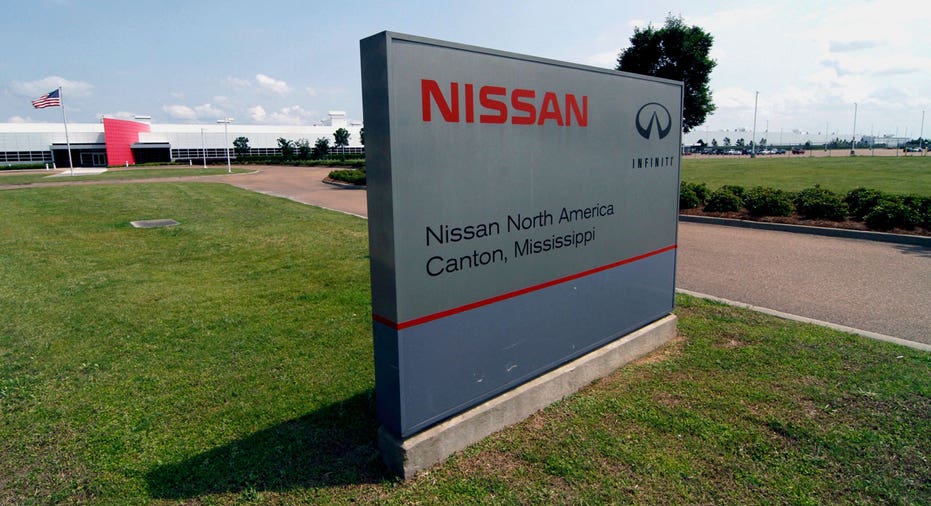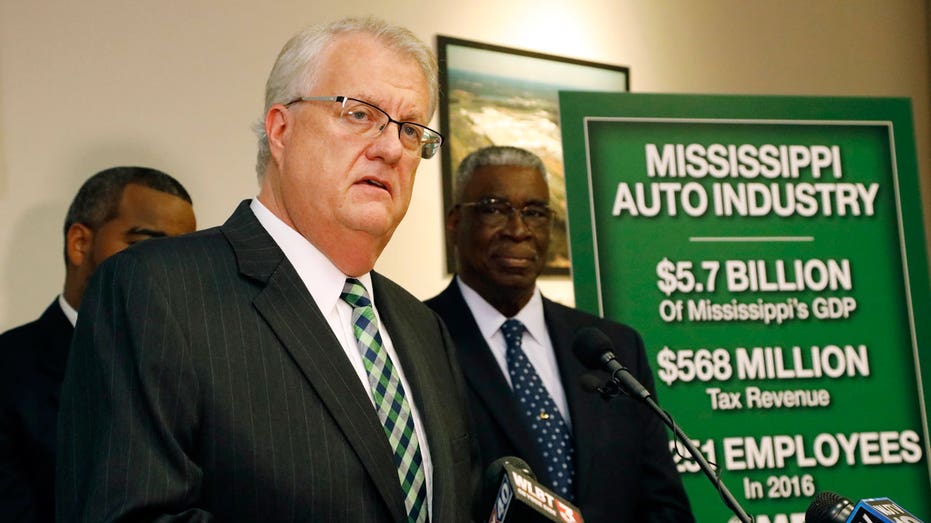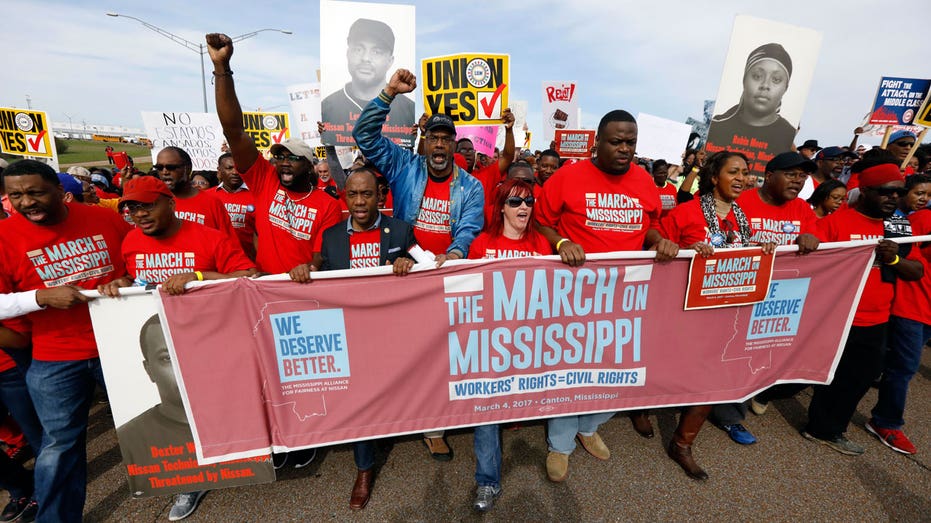Union battle: Nissan, UAW fight for votes in Mississippi factory

Nissan is campaigning against an effort to unionize the Japanese automaker’s Mississippi factory, where the United Auto Workers union is looking to score a rare victory in the South.
As many as 4,000 workers will vote Aug. 3 and Aug. 4 at the vehicle assembly plant in Canton, just north of Jackson. The union promises it would help negotiate better working conditions, benefits and wages at the plant. However, managers warn that the UAW will ultimately hurt both the company and the workers.
The UAW has yet to successfully win over an entire foreign-owned auto factory in the South. The UAW’s push to organize Nissan workers harkens back to a similar effort at Volkswagen’s plant in Chattanooga, Tennessee, in 2014. VW backed the union’s campaign, but the UAW still lost the vote. A year later, a smaller number of skilled workers chose UAW representation.
Union supporters tried to pressure Nissan for years into staying neutral, or at least toning down its anti-union stance. But managers, while saying workers get to decide, are pushing against the UAW. The company is broadcasting anti-union videos inside the plant, and the UAW says supervisors are pulling workers into private meetings to gauge UAW support and persuade workers against unionizing.
The UAW has tried to bolster support among the majority-African American workforce by linking union support to civil rights, but even union supporters admit management's message is causing some pro-UAW workers to waver.
"People who were for the union are now undecided," said Shanta Butler, a union supporter.

Workers at Nissan's plant in Smyrna, Tennessee, rejected the UAW in 1989 and 2001 votes, but this is the first election in Canton. Though unions have struggled to crack southern auto plants owned by foreign companies, unions have prevailed nationwide in 65 percent of elections from October through June, National Labor Relations Board figures show.
The top Nissan executive in Canton appeared in the first video urging rejection of the UAW barely a day after the union announced that it had filed a petition with the labor board to hold the election.
"We know the union will make promises it can't keep to get you to vote for the UAW," Marsh said in a recorded video message to workers. "But when you see the UAW's empty promises for what they really are, and get the complete facts, the choice is clear."
Anti-union messages from managers aren't unusual in labor elections, but the pressure can be very uncomfortable for workers.
"It is often very tense," said Vanderbilt University sociologist Dan Cornfield, who has studied unions. "It's tense because both sides feel a lot is riding on it for them."
UAW Secretary-Treasurer Gary Casteel said the union's goal is to help wavering union supporters "have enough fortitude" to stick with the union in the face of anti-union messages. Nissan contends the UAW history of strikes and other actions have caused economic losses for workers and automakers; Nissan maintains its workers already have good pay and benefits.
"I've never seen a more aggressive campaign," Casteel said in a phone interview. "I've seen a lot as aggressive."
Casteel called management's efforts "intimidation," but Nissan spokeswoman Parul Bajaj rejected that description. Managers have said they're giving workers the facts about the UAW.
"Nissan respects and values the Canton workforce, and our history reflects that we recognize the employees' rights to decide for themselves whether or not to have third-party representation," Bajaj said.
The union hasn't alleged any new violations of federal labor law. Following earlier UAW allegations, the NLRB charged, among other things, that managers illegally questioned workers and threatened to close the plant if it unionized. That legal case is unresolved.

The 14-year-old plant is where Frontier and Titan pickups, Murano SUVs and NV vans are assembled. Its annual capacity of 450,000 vehicles is about 8 percent of all Nissan vehicles made worldwide last year.
UAW supporters have protested against Nissan's opposition to the UAW around the world, especially in France. The French government owns nearly 20 percent of the Renault Group, Nissan's business partner. Carlos Ghosn, Renault Nissan Alliance chairman, told French lawmakers in 2016 that the alliance "has no tradition of not cooperating with unions."
Casteel said the union may raise Nissan's opposition with French officials, often much more sympathetic to organized labor than their American counterparts.
It's unlikely pressure on Mississippi workers will lessen before they vote.
"They always say the same old things and they always do the same old things," Casteel said. "The reason they do them is because they work."
The Associated Press contributed to this report.



















